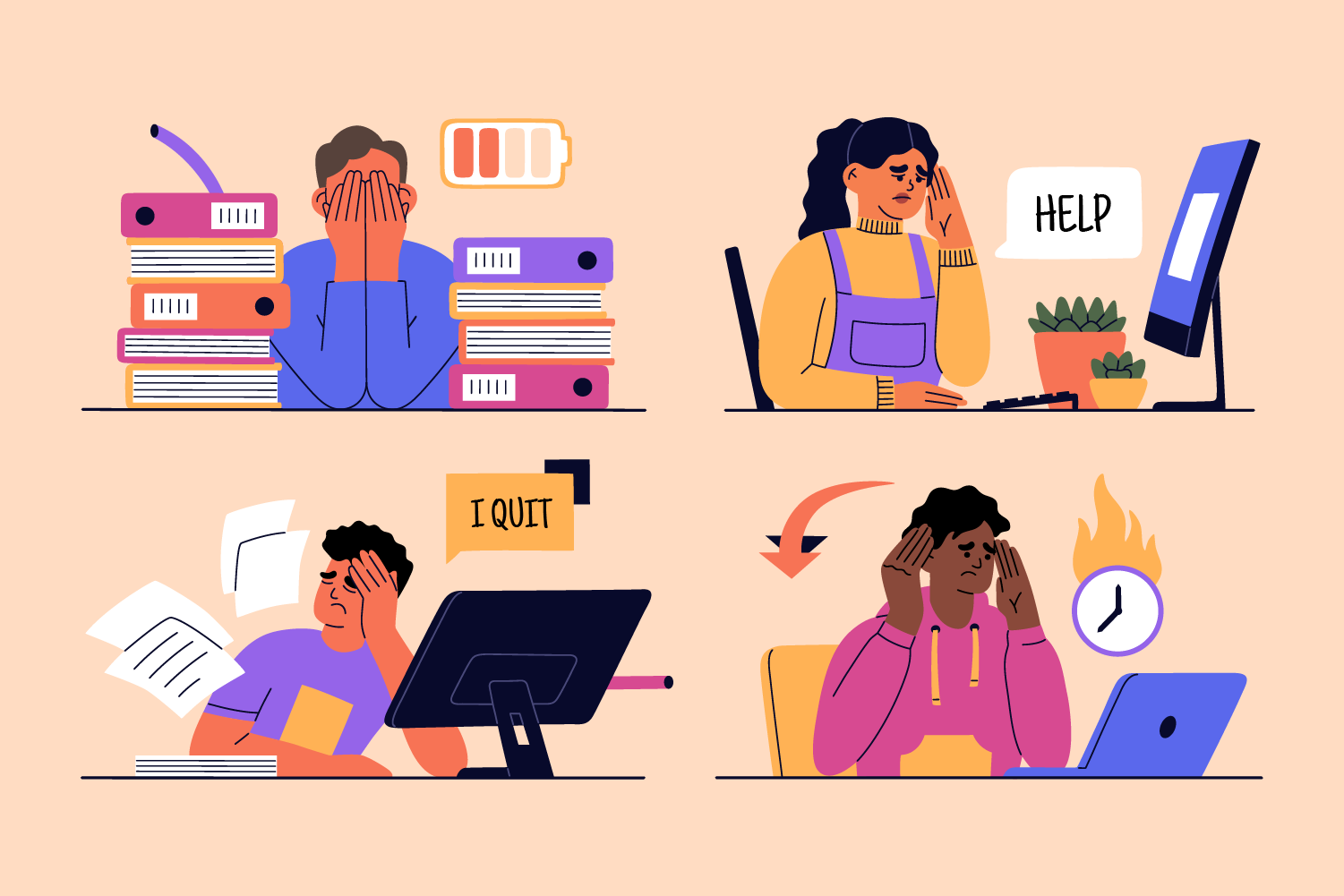Yes, Positivity Can Be Toxic—and It May Be Impacting Your Workplace

During the first year of the pandemic, John*, who works at a post-secondary institution as a student services manager, repeatedly tried explaining to his boss that he was burning out from unpaid overtime. He was working around the clock to move face-to-face services online while also providing faculty with resources to support their students during Covid. After working 12-hour days for six weeks, the stress was affecting John’s ability to sleep, eat well, approach tasks with a clear mind and support colleagues.
But whenever John tried to convey how difficult the situation was, his manager didn’t seem to hear him. “He was always smiling and nice about it, but it was disingenuous because he never actually did anything to change the circumstances,” John says. “Instead, he would thank me for my work, congratulate me on the new skills I was developing and then the meeting would end.”
John describes his manager’s response as “toxic positivity”—an avoidance strategy that dismisses real challenges by promoting a look-on-the-bright-side mentality. What may be called a “good vibes only” attitude, the behaviour suppresses any emotions that are deemed negative, says Tatijana Busic, an organizational psychologist at Toronto-based consulting firm People in Business Inc. In the workplace, toxic positivity might look like telling struggling employees that “things always get better,” while failing to enact changes that would actually ensure they do. While the intention may be to boost morale, toxic positivity can have detrimental effects on employees and workplace culture.
How toxic positivity affects the workplace
Toxic positivity can hurt employees—especially in times of high stress. The past two years have been a period of difficulty and uncertainty, and emotional responses to these challenges should be expected, Busic says. That’s why it’s important for leaders to acknowledge hard situations, as avoiding them can cause more harm than good. “Invaliding someone’s lived experience erodes trust,” Busic says.
What’s more, when people feel unheard by bosses or colleagues, they become defensive, which disrupts healthy communication. When connections with co-workers are weakened, employees don’t feel psychological safety—which is the ability to be themselves, ask questions and make mistakes without fear of any negative consequences, such as punishment or humiliation. A lack of psychological safety hinders collaboration and lowers employee engagement and productivity, Busic says.
“Invaliding someone’s lived experience erodes trust”
John experienced this firsthand. He says he lost respect for his manager because his “positivity” is coming off as condescending and dishonest. He needed support—not to be told he’s growing from these hardships. “I would rather someone be direct and acknowledge challenges than diminish them by constantly putting a positive spin on them or pretending they don’t exist,” he says.
How to combat toxic positivity in the workplace
If you’re a leader and notice traits of toxic positivity in yourself, the first step is to acknowledge the behaviour. Then, you can examine your own beliefs and biases around emotions, Busic says. On the surface level, telling someone to “cheer up” may seem to come from a good place, but when we invalidate, deny or suppress others’ emotions that we judge as negative, “it’s less about making people feel better and it’s more about our own inability to tolerate difficult emotions,” Busic says.
There can also be a fear of opening up the emotional floodgates by talking about feelings, and creating an overly emotional workplace environment. But, Busic says, that isn’t likely to happen. She explains that people tend to become less emotional when they feel seen and heard. “If their experience is respected, they have been given space to exist as they are,” she says. “That is very powerful.”
As a boss, if you’re faced with an employee’s unhappy feelings towards an issue at work, Busic suggests taking a moment to calm yourself down first. She recommends taking a few minutes to catch your breath, splash some cold water on your face, or do an activity—like a walk—to calm your nervous system. You can better acknowledge others’ feelings and work toward a solution, she says, if you’re coming from a more self-aware headspace.
A good response to someone’s issues will depend on the context, but respectfully voicing that you see they are upset, and that it makes sense that they’re upset, will validate their experience. Then, it’s important to explain that you’re there for them and ask what you can do to help. This can include re-assigning tasks, extending deadlines or helping clear their schedule for some vacation time.
For employees on the receiving end of toxic positivity, being honest about what you need can be helpful if you have a relationship with your boss where it’s safe to speak up. If you can, directly communicate your needs then take a pause so your boss has a chance to respond.
However, not all employees will get the response they would like or have a relationship where they can speak freely. In these situations, it’s important to remind yourself that a leader’s toxic positivity is not a reflection of you, and their reactions have nothing to do with you. In fact, it’s a reflection of their own difficulty with emotion. Give yourself permission to validate your own emotional experience, Busic says, even if your boss dismisses it. This is where speaking to an outside confidant, like a career coach or therapist, can help.
John’s experience with his boss has changed the way he talks to his own direct reports about the challenges of working life. He says he encourages them to demonstrate leadership when confronted with challenging situations, but also acknowledges when they are struggling and need support. “I can’t always fix the situation,” John says, “but it’s important to me that I don’t come across as unwilling to try to work through it.”
*John is a pseudonym to protect his job









